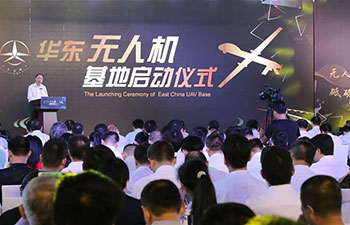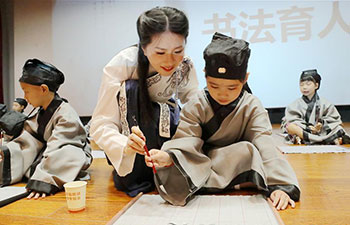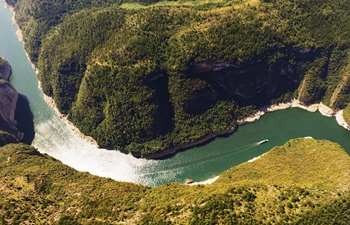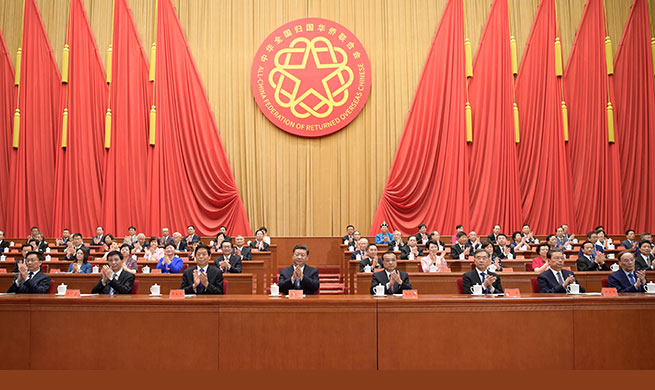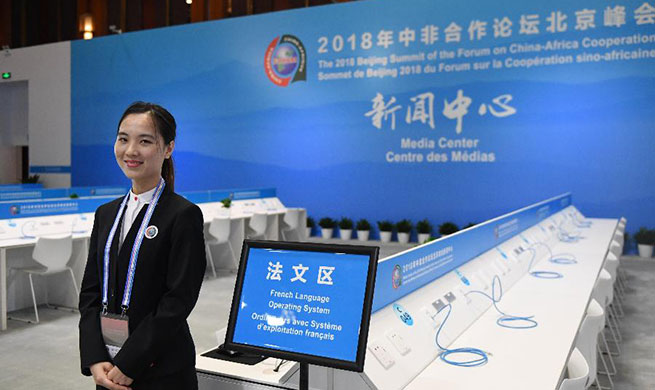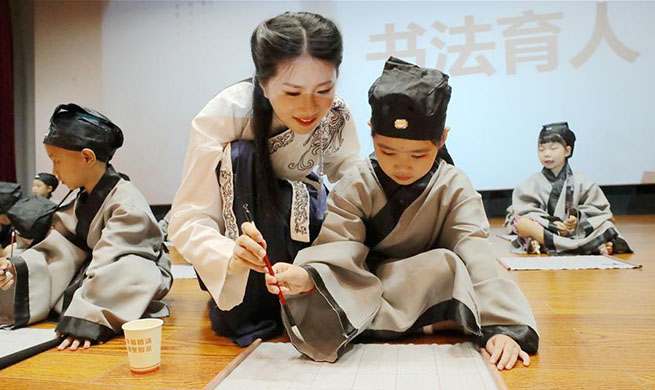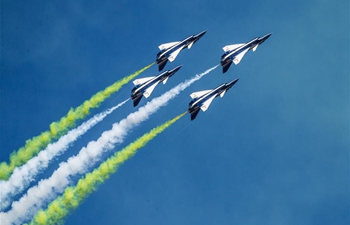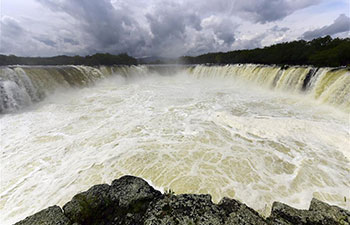TOKYO, Aug. 30 (Xinhua) -- Ceremonies here have been held recently nationwide to commemorate Japan's surrender in World War II with pledges being made by the government to never walk back down the path of war.
Paradoxically, however, analysts have pointed out that just a mere 73 years later, and in light of recent pledges, Japan's Ministry of Defense (MOD) has outlined a shopping list of next-generation military hardware that is perhaps not befitting of a country which, ostensibly, has no military forces as recognized by its own constitution, albeit for the time being.
Under Japanese Prime Minster Shinzo Abe, defense spending has risen each year since his Liberal Democratic Party retook power in 2012.
With inflation hovering at less than 1 percent, that's an enormous chunk out of the fiscal purse for a country not at war and, currently, not facing any overt threats, observers have said.
Indeed, Japan's regional ties with the very neighbors it tormented before and during WWII, have taken a turn for the better recently, and with the plethora of economic woes Japan is facing, along with its related demographic crisis, experts ranging from sociologists, historians, politicians, teachers and military commentators have expressed concern about Japan's constantly rising shopping bill for weapons.
Just days after the nation mourned for the lives lost in WWII and for the bombings of Hiroshima and Nagasaki, necessary catalysts for Japan's surrender, Japan's Ministry of Defense in its latest annual white paper has set forth its plans to "steadily build up its defense capability."
Referring to Japan's security situation as "severe" despite the recent thaw in regional tensions and historic developments made regarding the Korean Peninsula, Japan said its increased expenditure under such a "severe" security environment is to "strengthen the posture for protecting the life and property of the Japanese people as well as Japan's territorial land, sea, and airspace..."
The annual white paper goes on to outline the introduction of the Aegis Ashore land-based missile interception system. Japan also wants Standoff missiles in its arsenal which can be launched outside of the threat range of its target, as well as more new compact frigates with improved multi-task capabilities. It also plans to acquire SM-3 Block IIA missiles that have the ability to take down ballistic missiles that travel in a lofted trajectory.
In terms of outlays for research, the annual white paper highlights a Hyper Velocity Gliding Projectile, which, it states, is intended for the defense of remote islands. The missile can glide at high velocity and attack a target in order to enable island-to-island firing, the paper says.
It adds that research will also be conducted on on element technologies of a new anti-ship missile also intended for the defense of remote islands.
And this is just a fraction of the weaponry that is being disclosed to the public and comes on the heels of some serious hardware from the current budget, commentators on the matter have asserted.
The majority of the defense ministry's latest requests for fiscal year 2018 were not defensive in nature, such as the planned acquisition of Global Hawk drones, two new "compact" destroyers, a next-generation lithium battery-powered stealth submarine, four V-22 Osprey tilt-rotor troop carriers, six F-35 stealth fighters to develop hypersonic missiles capable of striking enemy bases.
Japan is not at war and has recently vowed to pursue closer ties with its neighbors, but most of these allocations are for offensive weapons with first strike capabilities, analysts well-versed in military matters have said.
From an objective point of view, pursuing closer tiers with neighbors, while simultaneously acquiring and debating about unconstitutional "first strike" capabilities, seem somewhat incongruous, experts on geopolitical affairs have said on the matter.
And while every country has the right to defend itself, Japan and Abe in particular, should do well to earnestly pursue rebuilding bridges of trust in the region, not prioritize acquiring the technology to rebuild an army that just seven decades ago almost brought the world to its knees.
